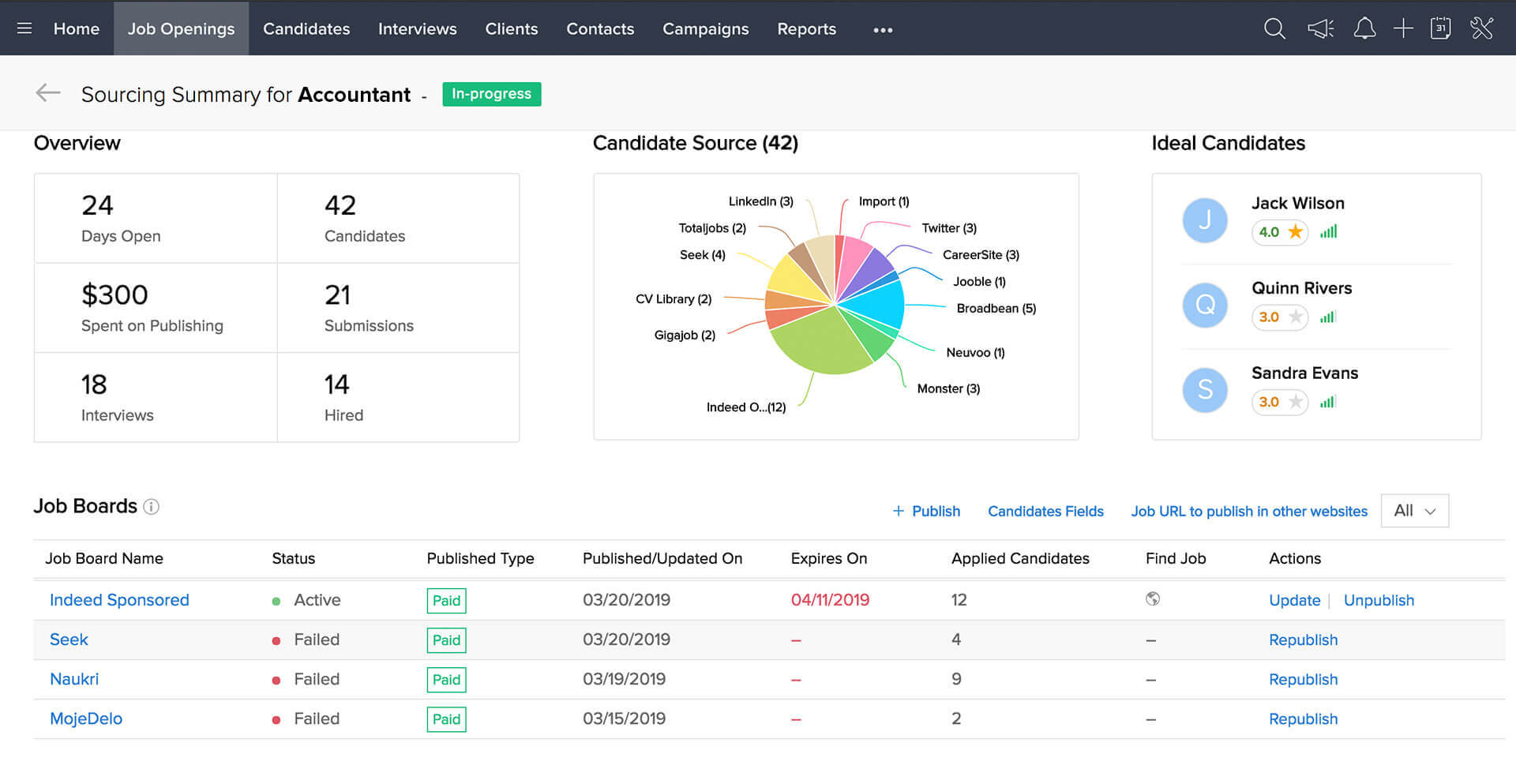Out of Confusion to Understanding: The Modern Recruitment Solutions
In today's fast-paced corporate world, the process of finding and recruiting the right talent can often feel overwhelming. With many candidates vying for positions and an constantly changing job market, companies face the difficulty of navigating lots of applications to identify those who truly fit their needs. This is where modern hiring tools come into play, transforming what was once a chaotic and time-consuming process into a streamlined and efficient system.
Hiring software has emerged as a crucial asset for companies looking to enhance their recruitment practices. By making use of technology, businesses are not only able to save precious time during the recruitment process but also improve the quality of their hires. The benefits extend beyond mere effectiveness; these tools provide important insights into candidate databases, facilitate better communication, and cultivate a more interactive experience for both recruiters and applicants. As companies strive to attract best talent in a competitive landscape, the significance of comprehensive hiring software cannot be undervalued.
Optimizing the Hiring Method
Advanced recruitment software significantly enhances the efficiency of the hiring procedure, allowing organizations to oversee applications and monitor candidates seamlessly. By simplifying mundane tasks such as resume screening and candidate scheduling, organizations can allocate their time and resources more effectively. This decrease in administrative burdens allows that HR teams can concentrate on what truly matters – securing the ideal talent for their organization.
Moreover, these tools provide a structured approach to hiring that lowers the confusion often associated with hiring. Features such as joint hiring options enable hiring teams to distribute feedback and insights in real time, guaranteeing that all participants is on the same understanding. This collaboration fosters a more aware decision-making process, ultimately culminating in better hiring outcomes and a stronger team culture.
Finally, modern recruitment software enhances interaction between candidates and hiring managers. By providing a centralized platform for updates and notifications, candidates stay engaged throughout the recruitment journey. This better communication not only boosts the candidate experience but also shows positively on the firm's brand, making it more appealing to future talent.
Enhancing Applicant Engagement
In the competitive landscape of hiring, enhancing the candidate experience is paramount. Hiring software plays a vital role in streamlining the application process, making it more straightforward for candidates to browse job opportunities and submit their submissions. With user-friendly interfaces and mobile optimization, applicants can submit their applications anytime and anywhere, leading to higher engagement and a elevated volume of submissions.

Interaction is a clutch element in applicant engagement, and modern recruitment tools facilitate quick and transparent interactions. Automated updates regarding submission status, interview scheduling, and responses help candidates feel educated and valued throughout the process. This not only reduces stress but also encourages a favorable impression of the organization, even among those who may not be selected for a position.
Moreover, recruitment software often facilitates customized applicant interactions by allowing custom messages and assessments. By leveraging data-driven analytics, companies can more effectively align job roles with candidate interests and skills. This individual method not only attracts best talent but also ensures that applicants feel appreciated and acknowledged, enhancing their complete experience with the recruitment process.
Data-Driven Decision Making
In the competitive landscape of current recruitment, utilizing data is essential for forming data-driven hiring decisions. Recruitment software delivers crucial insights and analytics that allow companies to track the efficacy of their hiring processes. By analyzing metrics such as time to hire, source of hire, and application conversion rates, organizations can identify trends and make required adjustments to streamline their recruitment efforts.
Harnessing data-driven insights enables companies to more comprehensively understand their candidate pool. For example, recruitment software can analyze demographic patterns, skills gaps, and applicant behavior, thus helping recruiters seek out the right talent for specific roles. software recruitment makes certain that hiring managers are not only reviewing a varied range of candidates but are also concentrating on individuals who possess the right qualifications and ability to succeed within the company.
Furthermore, data-driven decision making reduces biases that can occur during the hiring process. With factual data at hand, hiring teams can evaluate applicants based on relevant criteria rather than subjective impressions. This approach promotes a more equitable recruitment environment and helps organizations make choices that correspond more closely with their overall strategic goals, ultimately leading to improved workforce quality and performance.